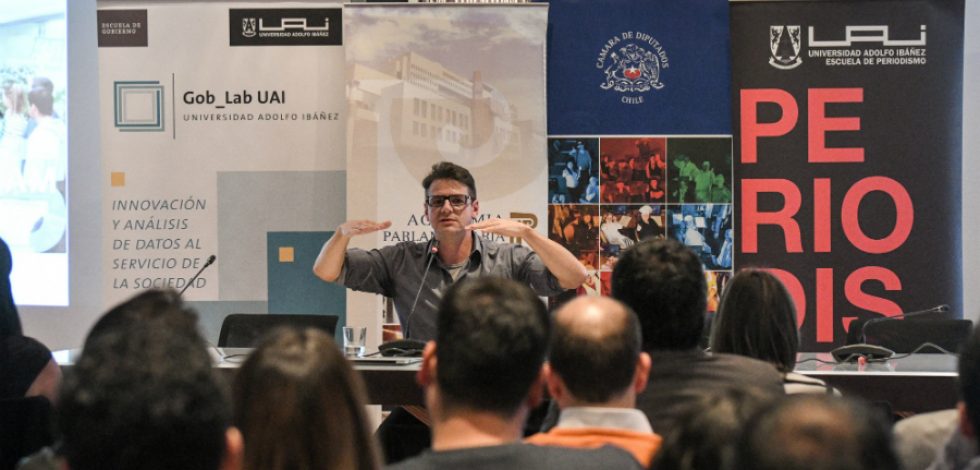
Can an ordinary person play a role in creating new laws? For the doctor of Political Science and Sociology of the State University of Rio de Janeiro, Cristiano Ferri, it is possible. How? Through the digital world.

Crowdlaw: the power of citizenship in laws
May 2, 2018
Can an ordinary person play a role in creating new laws? For the doctor of Political Science and Sociology of the State University of Rio de Janeiro, Cristiano Ferri, it is possible. How? Through the digital world.
The founder and head of digital innovation projects of the Lab Hacker of the Chamber of Deputies of Brazil came to share their experience to Chile invited by the Chamber of Deputies of Chile in conjunction with the School of Journalism and the GobLab UAI of the Government School of the UAI.
In his presentation the associate researcher of the Ash Center for Democratic Governance and Innovation of Harvard University and author of the book “The open parliament in the age of the Internet”, told how through the Chamber’s internal innovation lab, Lab Hacker – which he founded in 2013 – and the digital e-democracy platform can achieve citizen participation in processes such as public hearings and the drafting of laws.
For him, you have to listen to the voice of the people who express their opinions through social networks and put them to good use because he states that “technologies are advancing much faster than institutions and there is a tension between them causing a disagreement between these and citizens, generating distrust. This happens in Brazil, but also in other parts of the world.”
Ferri said that in order to solve this problem, countries must invest urgently in renewing institutions through experiments in representation that give new alternatives of democracy through an open government and parliament. “It cannot happen that public policy discussions are held on platforms created only for commercial purposes,” he said.
The director of GobLab UAI, María Paz Hermosilla, agrees with the expert: “Previous experience shows that citizen participation in the creation of laws works best when choosing issues that do not polarize society. It requires a committed political leadership and experts that translate citizens’ contributions into the language of Congress.”
The academic of the School of Journalism, Luis Enrique Santana also shares the importance of uniting the community with the legislative power through technological tools that lead the discussion of social networks towards institutions. “Facebook and Twitter have become political discussion platforms that run in parallel and with few meeting points with governance institutions,” he says.
In order to advance this theme in our country, the UAI is preparing a research project with Santana, Hermosilla, Professor Mayra Feddersen (Faculty of Law), the GovLab of the New York University and Harvard University.



